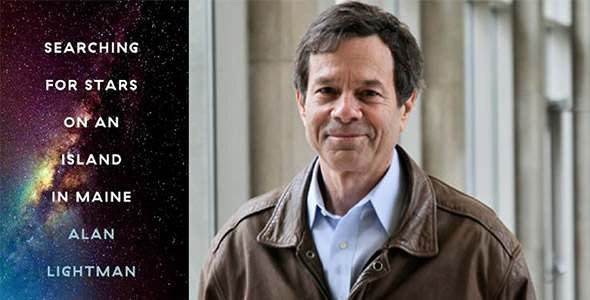3Q: Alan Lightman on science and the life of the spirit
New book, “Searching for Stars on an Island in Maine,” examines the tensions between belief and knowing.

"I think everybody has had transcendent experiences, where you feel at least briefly that you are connected to something much larger than yourself."
—Alan Lightman, Professor of the Practice of the Humanities
Q: What is your new book about?
A: Well, it’s generally about science and religion. More specifically, it’s about the different kinds of knowledge that are had in science and religion, and the differences in the way that knowledge is obtained. When I’m talking about religion, I’m mainly not talking about organized, institutional religion, but the personal religious experience, or what one might call the transcendent experience. I draw on recent scientific developments to discuss the way science has rendered everything in the physical universe impermanent, which strikes at many of the beliefs of religious doctrine.
But I also draw on philosophers and theologians and writers, from Aristotle to St. Augustine to Emily Dickinson. Because these are weighty issues, I don’t confront them head-on, in a didactic manner. The book is written in the style of an extended meditation, in the vein of Henry David Thoreau’s Walden or Annie Dillard’s Pilgrim at Tinker Creek. So, it has that kind of meandering tone that is rooted in a geographical place. In this case it’s an island in Maine.
Q: You draw out a distinction in the book between “absolute” and “relative” forms of knowledge, as a way of thinking about the differences between science and religion — and even about the tensions within science. Could you explain this distinction?
A: The conversation between science and religion is is embedded in a larger conversation about what I call the “absolutes” versus the “relatives.” The absolutes are qualities including permanence, immortality, unity, certainty — all qualities religious belief rewards us with. And I think we have a deep psychological yearning for those qualities. And the relatives are the converse of that: Impermanence, fragmentation, mortality, materiality, divisibility — qualities that have been found by science to exist in the material world.
Browse more SHASS stories about Teaching and Learning
Suggested links